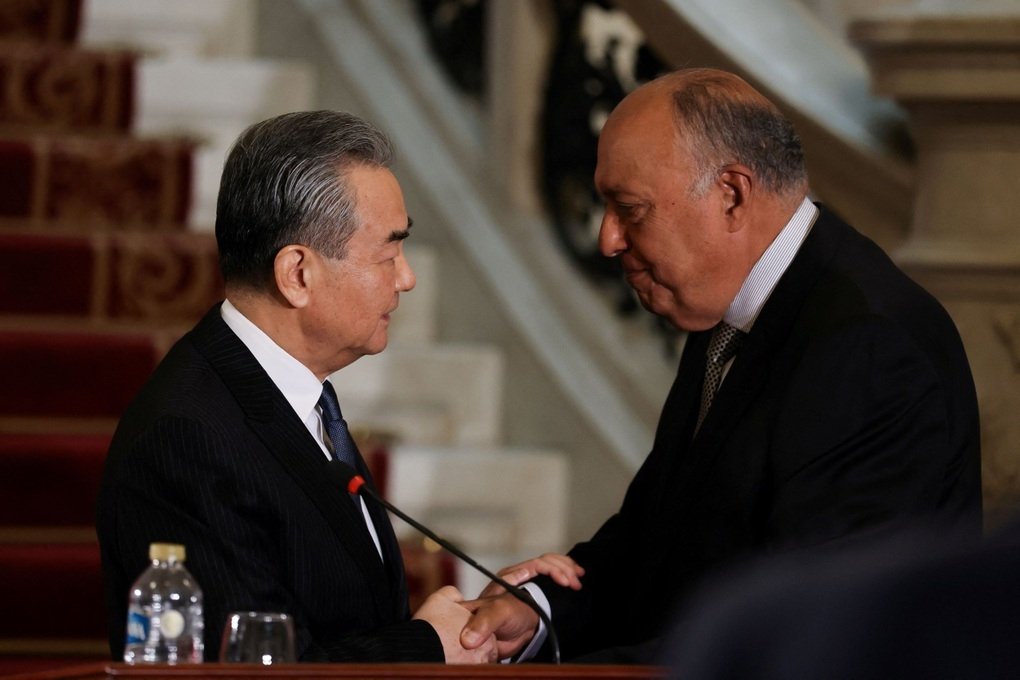(Dan Tri) – The practice maintained for more than 30 years through different generations of Chinese foreign ministers shows Beijing’s policy priorities.
Chinese Foreign Minister Wang Yi held a joint press conference with his Egyptian counterpart Sameh Shoukry during the visit on January 14 (Photo: Reuters).
When Chinese Foreign Minister Qian Qichen visited Ethiopia, Uganda, Kenya and Tanzania in January 1991, he set in motion what Chinese state media called an `unstoppable trend.`
This practice has been maintained for more than 30 years through different generations of Chinese foreign ministers including Mr. Duong Gia Trien, Ly Trieu Tinh, Duong Jiechi and Tan Cuong.
Observers see maintaining this decades-old tradition as a diplomatic tool and China’s way of showing that Africa is at the top of its diplomatic agenda and will continue to be.
However, China’s connection to the region has not always been the same.
`This has created a narrative of stability and continued prioritization of China-Africa relations,` said Lina Benabdallah, professor of politics and international relations at Wake Forest University.
According to Alessandro Arduino, associate lecturer at King’s College London, Africa `has been and remains a top priority for China`.
“Over the past decade, China has sought to position itself not only as an economic power but also as a regional security player, as evidenced by increased military training and
China has been Africa’s largest trading partner for more than a decade.
China also invests in a series of large projects in Africa, with most countries in the region participating in Beijing’s Belt and Road initiative.
On the security front, China is increasingly involved in peacekeeping, anti-terrorism, anti-piracy efforts and other measures thanks to its extensive investments in the region.
The country has also sought to expand its military footprint.
Mandira Bagwandeen, a political science lecturer at Stellenbosch University in South Africa, said China’s relationship with the continent has developed into a `multifaceted relationship` since 1991.
Africa is rich in natural resources such as oil and minerals, which became an important source of raw materials and a consumer market for China’s growing economy in the early 2000s.
While resource interests will remain the mainstay of China’s engagements with the region, Ms. Bagwandeen said Beijing’s interest in playing a role in Africa’s industrialization has added
Although Africa’s importance to China may change over time, according to analyst Benabdallah, it is unlikely that Beijing will leave this region, especially in the context of geopolitical competition.
